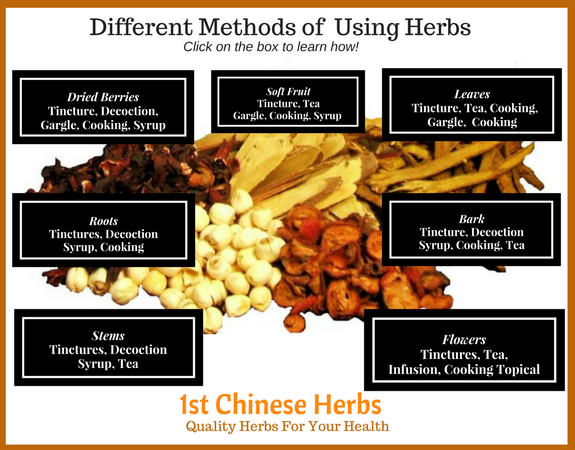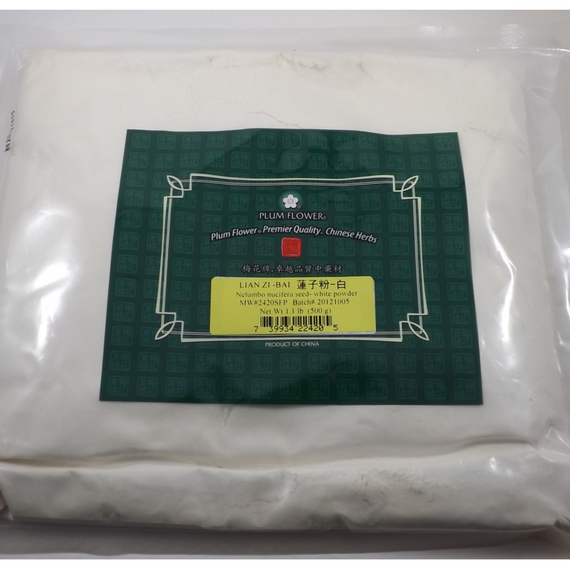Cassia Seeds (Jue Ming Zi): The Comprehensive Guide to Vision, Cardiovascular, and Digestive Support
Overview
We explore Cassia seeds—Jue Ming Zi (决明子), also known as Semen Cassiae, the dried seeds of Cassia obtusifolia or Cassia tora. For centuries physicians in East Asia prescribed these shiny brown seeds to “clear Liver fire and brighten the eyes.” Modern pharmacology now corroborates many of those claims, revealing potent antioxidant, lipid‑modulating, and neuroprotective activities. This in‑depth resource distills current science, Traditional Chinese Medicine (TCM) doctrine, and practical usage so readers gain evidence‑backed clarity on why, when, and how to use Cassia seeds safely.
TCM Functions and Indications
-
Clears Liver heat to improve vision
Classic indications: red, painful, or photosensitive eyes; dry eye; early cataract. -
Subdues ascending Liver Yang
Headache, dizziness, hypertension with rising Yang. -
Moistens the intestines and promotes gentle bowel movement
Habitual or heat‑induced constipation. -
Supports Kidney yin
Balances the Liver‑Kidney axis, especially when dryness affects the eyes.
Processing note: Dry‑frying (炒决明) reduces the purgative effects and enhances tonification of the Liver‑Kidney yin.
Active Constituents—Why Cassia Seeds Work
| Phytochemical class | Representative compounds | Documented actions |
|---|---|---|
| Anthraquinones | Rhein, emodin, chrysophanol, obtusin | Laxative, lipid‑lowering, antioxidant ScienceDirect |
| Naphthopyrones | Cassiaside, toralactone | Neuroprotective, anti‑platelet PMC |
| Flavan‑3‑ols & polysaccharides | Catechin, galactomannan | Glycemic control, immune modulation |
| Fatty acids & sterols | Linoleic acid, β‑sitosterol | Cardiovascular support, anti‑inflammatory |
Modern Research Highlights
Eye Health & Vision Protection
-
Cassia‑seed tea improved dry‑eye symptoms, lowered intra‑ocular pressure, and enhanced near vision in a 2024 randomized human trial MDPI.
-
Antioxidant capacity of Cassia infusion surpassed wolfberry and vitamin C in the same study, suggesting free‑radical scavenging as a primary mechanism.
Lipid Metabolism & Cardiovascular Benefits
-
A 2025 Frontiers in Pharmacology paper showed Cassia‑seed extract ameliorated hyperlipidemia in rats by modulating lipid pathways and FcγR‑mediated immunity Frontiers.
-
Extended human administration (3 g/day, 36 weeks) reduced total cholesterol and waist circumference in overweight patients PubMed.
Neuro‑ and Hepato‑protection
Pre‑clinical studies demonstrate reduced neuronal apoptosis after ischemia‑reperfusion injury and hepatoprotective effects via Nrf2 pathway activation PMC.
Antidiabetic & Antihypertensive Potential
Naphthopyrone glucosides improved insulin sensitivity and vasodilation in rodent models PMC.
Evidence‑Based Usage & Dosage
| Preparation | How we use it |
|---|---|
| Raw seeds (decoction) | Stronger purgative & lipid‑lowering effects |
| Dry‑fried seeds | Gentler on bowels, eye tonic |
| Granules / capsules (10:1 extract) | Convenient travel option |
| Cassia‑eye tea blend | Computer‑strain relief |
Timing: Evening administration suits constipation relief; morning dosing better supports lipid and vision goals.
Safety, Contraindications & Interactions
| Consideration | Detail |
|---|---|
| Pregnancy & lactation | Avoid high doses; anthraquinones may stimulate uterine activity. |
| Cold diarrhea / Spleen deficiency | Use roasted form or combine with warming herbs like ginger. |
| Drug interactions | May potentiate laxatives and enhance statin effect—monitor lipids. |
| Adverse effects | Soft stool, abdominal cramp (rare, dose‑related). Discontinue if persistent. |
Quality Assurance & Sustainable Sourcing
We select seeds grown without sulfite fumigation, verified for:
-
Anthraquinone profile by HPLC ≥ 2.5 % rhein/emodin combined
-
Microbial load within USP <2023> limits
-
Heavy metals & pesticides per Prop 65 standards
-
DNA authentication to exclude Senna occidentalis adulteration
Our supply partners rotate crops and use solar drying to lower carbon footprint—aligned with WHO sustainable‑herb guidelines.
| Health Benefits | Why It Works (Science + TCM) | How to Use | Common Questions | Buy at 1stChineseHerbs.com | Key Interactions |
|---|---|---|---|---|---|
| Vision clarity, dry‑eye relief | Antioxidants neutralize reactive oxygen; clears Liver heat | Dry‑fried tea 2×/day | “Can I combine with goji berries?” — Yes, synergistic yin nourishment | Lab‑tested Cassia (organic, roasted) | Synergizes with chrysanthemum; avoid with stimulant laxatives |
| Cholesterol reduction | Rhein/obtusin activate AMPK & down‑regulate HMG‑CoA reductase | Powder 3 g with breakfast | “How soon for lipid drop?” — 8–12 weeks typical | 500 mg vegetarian capsules | May potentiate statins—monitor lipids |
| Gentle laxation | Anthraquinone glycosides increase peristalsis & water in colon | Raw decoction before bed | “Will it cause cramping?” — Rare if <12 g | Bulk seed packs | Not for chronic diarrhea |
| Blood pressure moderation | Calcium‑channel modulation; Liver‑Yang descent | 6 g seeds + Gou Teng tea | “Safe with ACE‑inhibitors?” — Monitor BP | Roasted‑seed instant granule | Additive with antihypertensives |
Frequently Asked Questions
Q1. Can we take Cassia seeds long‑term for cholesterol?
Yes, studies up to 36 weeks reported sustained lipid benefits with 3 g daily and good tolerance PubMed. Periodic liver‑function tests are prudent.
Q2. Is roasted Cassia less effective?
Roasting slightly attenuates laxative potency but preserves flavonoids; it is preferred for eye and cardiovascular indications.
Q3. Do Cassia seeds contain caffeine?
No. They are caffeine‑free and suitable for evening use.
Key Takeaway
We recognize Cassia seeds as a scientifically validated, multi‑target botanical that aligns ancient ophthalmic wisdom with modern metabolic health strategies. By integrating laboratory‑verified sourcing, precise dosing, and transparent education, we empower readers—patients, clinicians, and wellness enthusiasts alike—to harness Jue Ming Zi safely and effectively.
Herbal Information on Cassia Seed in Bulk Powder Form
Common Name: Cassia Seed, Semen Cassiae,
Botanical Name: Cassia obtusifolia seed
Channels/Meridians: Liver, Kidney, Large Intestine
Pin Yin Name: Jue Ming Zi
Other Ingredients: None, nothing has been added to this product.
Package Size: 500 Grams ( 1.1 pounds)
Form: Powder - Fine powder 80 to 100 mesh size (similar to the consistency of baking flour)
Dosage: Follow doctors instructions on how to use this herb.
Origin: China
Brand: Plum Flower, species - authenticated herbs
Cautions: Do not use if pregnant or nursing. Do not use in case of diarrhea, cold or influenza.
Product Properties: Salty, Neutral

Check out our How to Use Bulk Herbs page to see how to use herbs correctly. Our web page is constantly expanding, as of today we have articles on:
- How to make salves, poultice, tinctures, teas, capsules, gargles, and foot bathes
- How to make a citrus facial splash
- Cayenne pepper: Caterpillar and aphid spray ( Natural insect repellent )
- Citrus potpourri basket
About Plum Flower Quality Herb Powders
Plum Flower is an established worldwide manufacturer of high-quality Chinese herbs, and innovative Chinese medicinal herbs and products. Plum Flower uses sulfur-free herbs and laboratory tests its products for contamination and heavy metals, such as mercury, lead, and pesticides.
- Made at GMP internationally certified facilities (Good Manufacturing Practices) Quality control tests are done at the manufacturing site and at third party labs to confirm results.
- Manufactured using Unsulfured, Chlorine free, Aluminum Phosphate free herbs when possible.
- Microbials and heavy metals tested. No preservatives.
Traditional Chinese Herbs
Chinese Traditional herbs should be regarded as an added feature to modern western healthcare, and not as a replacement. Chinese traditional herbs ( Teas ) emphasize harmony, and balance.
References
https://tcmwiki.com/wiki/jue-ming-zi
https://www.sciencedirect.com/science/article/abs/pii/S0378874120334607
https://pubmed.ncbi.nlm.nih.gov/23426077/
https://pubmed.ncbi.nlm.nih.gov/33188899/
https://www.americandragon.com/Individualherbsupdate/JueMingZi.html
-
Zhou Y. et al. Cassiae Semen: A Comprehensive Review of Botany, Traditional Use, Phytochemistry and Pharmacology. J Ethnopharmacol. 2023. ScienceDirect
-
Lv M. et al. Cassiae semen extract ameliorates hyperlipidemia in rats. Front Pharmacol. 2025. Frontiers
-
Tsai Y. et al. Drinking cassiae tea improves ocular parameters. Medicina. 2024. MDPI
-
Chen W. et al. Processed Cassia seed powder reduces cholesterol in overweight patients. J Tradit Compl Med. 2022. PubMed
-
Shen L. et al. Pharmacological effects of Cassia Seed on atherosclerosis. Front Nutr. 2023. PMC
-
Liu H. et al. Naphthopyrone glucosides from Cassiae semen show anti‑diabetic activity. Phytomedicine. 2023. PMC





















